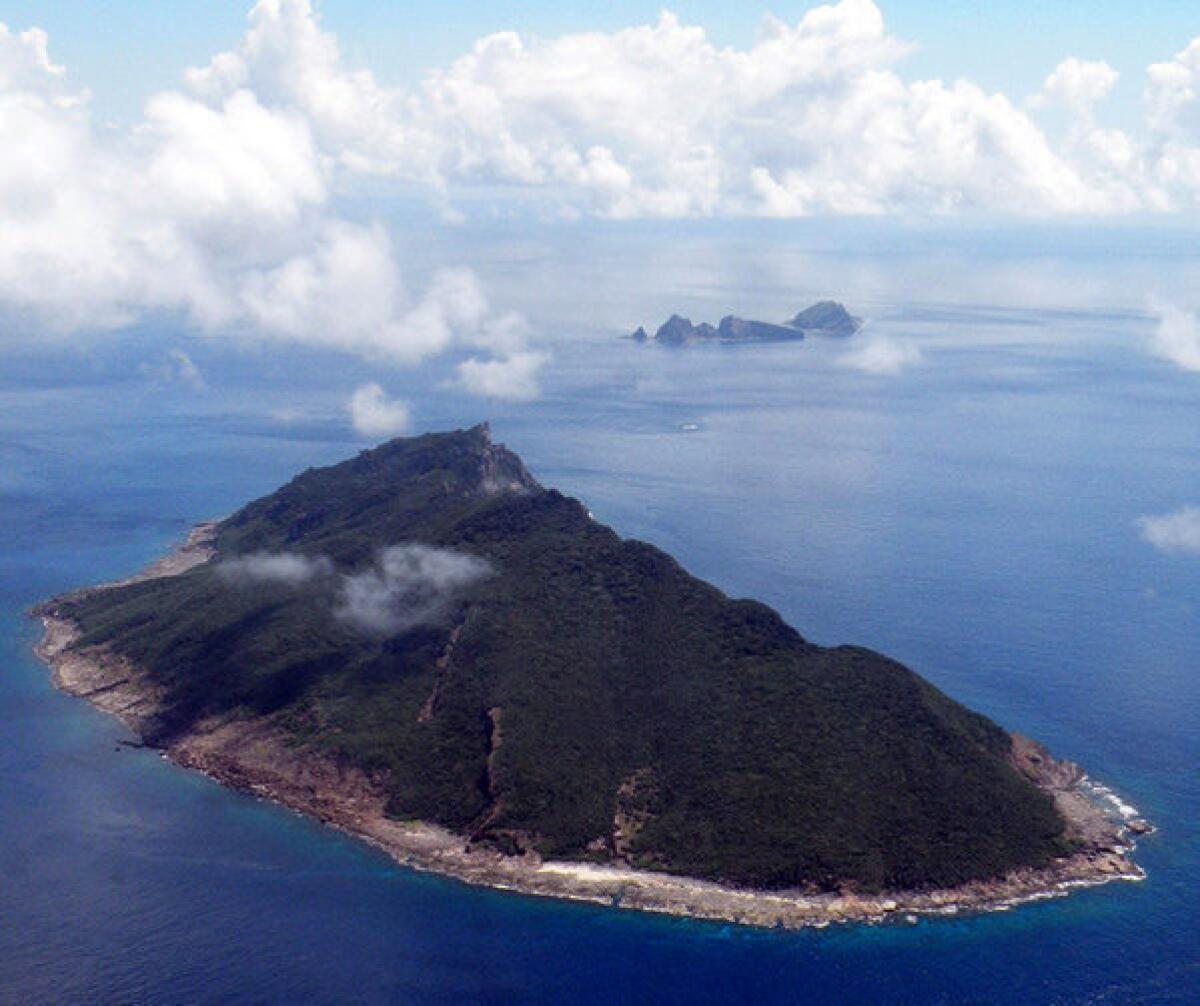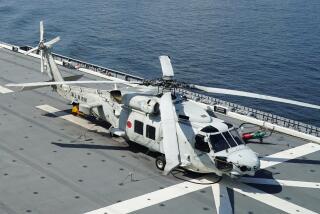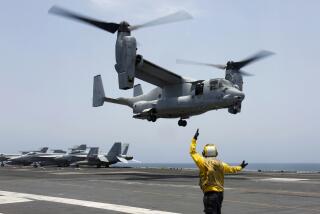China-Japan tension over disputed islands takes to the sky

BEIJING -- Chinese and Japanese fighter planes tailed each other over a disputed cluster of uninhabited islands in the East China Sea, raising alarm that a miscalculation could set off an armed confrontation.
Chinese military authorities ordered two J-10 fighter planes to perform what China called “verification and monitoring” on Friday after a Chinese transport plane was tailed by Japanese F-15 fighter jets. The incident above the islands, known as Senkaku to the Japanese and Diaoyu to the Chinese, was the most potentially dangerous in months of escalating tensions over the islands.
“Japanese military aircraft have been increasingly active in closely scouting Chinese aircraft. The activity zone of Japanese military aircraft has also expanded recently, which is the root cause of security disputes concerning territorial waters and airspace between the two countries,” the official New China News Agency quoted a military official saying Friday. “The Chinese military will be on high alert, and China will resolutely protect the security of its air defense force and uphold its legitimate rights.”
A long-standing disagreement over the islands flared in September when the Japanese government purchased some of the territory from a private Japanese owner, in effect nationalizing it. Since then, China has asserted its claim to the islands by sending ships, and more recently planes, into the region. On Dec. 13, the Japanese Defense Ministry announced that a Chinese plane had intruded into its airspace for the first time since at least 1958.
“There is far more at stake here than a small cluster of islands. Crisis-mitigation mechanisms need to be urgently reinstated and communication increased between Beijing and Tokyo to reduce the risks of an accidental clash or escalation,” warned Stephanie Kleine-Ahlbrandt, China and Northeast Asia project director for the International Crisis Group, in an editorial last week.
The standoff comes just as Beijing and Tokyo have installed more nationalistic governments. On Friday, Japan’s hawkish new prime minister, Shinzo Abe, promised not to compromise on the islands.
“My resolve to defend our waters and territories has not changed at all,” Abe said at a news conference in Tokyo. “There’s no room for negotiations.’’
The largest of the islands is inhabited by feral goats and is considered unsuitable for permanent human habitation, but the surrounding waters are thought to be rich in gas and oil reserves.
ALSO:
Italy’s Berlusconi squares off against TV host
Senior Scotland Yard detective found guilty of misconduct
Jimmy Savile sex-abuse scandal stretches across decades, report says
More to Read
Start your day right
Sign up for Essential California for news, features and recommendations from the L.A. Times and beyond in your inbox six days a week.
You may occasionally receive promotional content from the Los Angeles Times.






